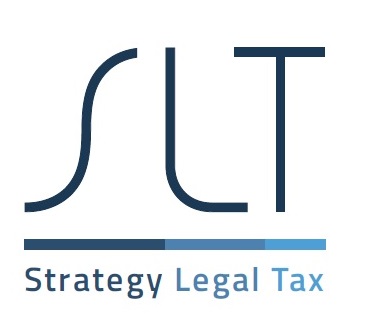Recent contribution for GGI Magazine by Claudio Ceradini
/0 Comments/in Legal-en/by Claudio CeradiniMy recent articole to contribute the GGI extrordinary newsletter about Covid-19 effects on world-wide bankruptcy regulation.
The pandemic spread of CoronaVirusDesease-19 over the last six months has caused in Italy mainly a dramatic health effects with 236 thousand infections and more than 34 thousand deaths so far, but also financial and economic problems due to both the shutdown period and the emotional impact on the population, which makes the restart phases growth almost flat.
Expectations about 2020 financial performance are alarming. UE Commissions forecast for Italian GDP trend minus 9.5% for 2020. Italian Statistic Institution seems to be a bit more optimistic, with “just” a minus 8% estimation. However, the future ahead is expected to be the worst economic scenario since the second world war, affecting a situation where family incomes growth trend has been completely flat during the last twenty years. We will see if such dramatic forecast will come true. At the moment what we know is that industrial production collapsed in March by almost 30% on average, but some activities suffered a 50% drop, such as automotive and textile industries. Private saving rate increased from 10% to 16%, due to the emotional reaction to the crisis, and consequently consumer spending dropped by 35% in tourism and Horeca (Hotellerie–Restaurant–Café), 15% in entertainment, and 10% in clothing, and so on.
In this situation the Italian government provided extraordinary solutions for individuals and companies, expected to generate approx 75 Euro-billions public debt increase and 470 Euro-billions government guarantees. Numbers are similar across Europe, in the first 30 industrial countries, which provided similar measures.
Furthermore the situation we are going through has stopped the huge and deep bankruptcy code reform, expected to come into force on 2020 August 15th. Alert procedures, expected to legally support restarting plans and early stage solutions for distressed situations has been postponed, together with a number of other modifications to current rules. Postponing decision was requested by the situation, given the new rules would immediately affect a huge and not sustainable number of micro and small enterprises, which could make actual GDP provisions even worse than forecast so far. Moreover restructuring plans and creditor composition plans procedures have been provided of a further extraordinary period to be discussed, detailed and approved, slowing down the process and giving companies and advisors a wider time frame to file the final plan and ask for approval and registration. For a limited period, actually terminating on July 1st, new bankruptcy applications have been completely frozen, together with legal forced debt collection procedures. Banks are asked to support, secured by the government, all companies to get through this period and perform ordinary payments on time, to preserve supply chains by collective collapse.
Should everything work, we will sort it out. Unfortunately all new decrees issued to face the pandemic effects provide complicated procedures and three times the measures compared to other countries. Almost eighty implementing regulations are expected, and will take time, which we don’t have. So let’s see what will happen, looking for our bureaucracy to be dismantled and made simpler.
SLT Roundtables, customers and professionals have never been so close
/0 Comments/in News-en/by Matteo ZanotelliIn the wake of the profound change that affects the market of intellectual professions (legal and tax in particular), the idea of relating with its customers in a different and innovative way was born.
Therefore, by adopting a logic based on a mere response to requests received, in favour of forms more oriented towards customer care models, SLT will periodically offer its customers moments of discussion dedicated to the in-depth study of issues of particular interest or topicality.
Round tables (to reaffirm the spirit that characterizes the initiative), free of charge and by personal invitation, where together with customers we professionals will address in a collected, dynamic and practical issues ranging from business and its development, the interaction between the economy and new technologies, the opportunities offered by new markets or sectors, the most relevant news in the legal and tax.
Last December, the pilot episode of this series of events, if one can say so, dealt with a current and heartfelt issue (the new legislation on the protection of personal data) and provided an opportunity to successfully test the format: other appointments will now follow in the coming months (the first, shortly, on contracts in international trade) with a model tried and tested and refined.
The deliberately collected character of the initiative will allow the live presence of a few participants at a time (10/20 people): however, just one contact will be enough to set up a dedicated meeting and directly address the topic of interest.
Early stage approach discussed during DCRI PG in Berlin
/0 Comments/in News-en/by Claudio CeradiniDuring DCRI Practice Group in Berlin we discussed about how to strengthen early stage approach. Alert procedures have been used for years in some of European Countries, and are about to come into force in Italy as well. They are, or shoud be, a potentially efficient legal path to face and solve financial crisis on early stage basis. In Italy we have less than 20% of companies suffering financial problems being able to file a creditor composition plan application, or a restructuring agreement court registration. Just 40% of those company goes successfully through the whole court procedure, 60% abort their plans and convert their approach into bankruptcy. Finally just 13% of succeeding composition plans are still active after three years. Globally, just 5 troubled companies out of a thousand are able to get definitively our from their problems. And situation is not that different throughout Europe. Two main reasons for this dramatic situation. First of all, entrepreneurs don’t usually look at their financial problems, just thinking the future itself will sort them out automatically, which is not. So we have a cultural issue. On other hand advisors focus normally on the legal structure of the plan, and forgive to fix the real company engine, which is the business model.
What is expected to arrive in Italy is a new option, called alert procedure. It is not new in Europe, given it has been working for sixty years or more in France, but the framework seems to be tailored on Italian companies. It provides a confidential approach. As soon as the procedure is activated, by the company or her auditors, local Chamber of Commerce provides three advisors selected from a dedicated list, which should include only professionals focused on distressed companies restarting plans. Here comes the point: it is a great opportunity for Italian advisors to develop a new approach, including financial, legal, but most of all strategic and counselling capabilities. The company will benefit of a protected six months period, to verify with the assistance of appointed advisors how to sort the problem out. If advisors will be able to investigate the real problem, offering the company a feasible solution, the trend of successful restructuring plans will rear up for sure.
See attached presentation for some more info.
GGI European Conference in Berlin. Early stage approach under discussion in DCRI Practice Group – Claudio Ceradini to moderate.
/0 Comments/in News-en/by Claudio CeradiniWhat is clear in Italy as in most of European countries is that only a few of distressed company sort really out of their problems. Most of them enter a bankruptcy procedure which terminates the company with a liquidation throughout a legal insolvency procedure. Less than 10% approach their situation promptly enough to file a creditor composition plan or a restructuring agreement application. Furthermore, the majority of the companies which succeed in reducing their debts fail in performing their restart plans, and go back to insolvency, damaging creditors twice.
An early stage approach of financial crisis would be more than useful, and would in average save costs and enterprises, the debtor itself and sometimes a material part of the chain value. The real question is how to get there? Why entrepreneurs are not able to see how fast insolvency grows in their company? Which one of the legal options available in Europe has the best track record and positive feedback? What can advisors do, or improve, to have a better approach to early stage crisis in small cap especially?
Probably the relationship between entrepreneurs and their small and family based companies goes above and beyond business and profit, involving human feelings and enlarging family to employees, staff and stakeholders, so that to detect the end of the game seems like accepting a family member death. On top of that, personal pride and the need to defend social status can make things tougher, and rational decisions hard to be taken. Probably the right way to improve legal solutions would be to tailor them on small cap dimension and peculiarities.
Those questions will be the background of Debt Collection, Restructuring and Insolvency Practice Group during next GGI European Conference in Berlin. We will go deeper in legislation comparison, moving from Vienna World Conference PG. On the other hand, we will open our discussion on what advisors can do, and what entrepreneurs should do to better manage and solve their company financial crisis.
We will try to answer five apparently simple questions:
- Why entrepreneurs can’t realise crisis growing up in their company?
- How many bankruptcy procedures are filed in your country every year? How many creditor composition plans (or similar)? How many restructuring agreements (or similar)?
- Are there legal solutions or approaches available in your country to support the „early stage” approach? How do they work? Are they successful? What should change to make them more efficient?
- How is general attitude and sensitivity for the so called „fresh start”?
- Is the situation different between large and medium / small companies?
- Should banks and financial institutions develop a peculiar approach?
See you all in Berlin
Evolution in the world of restructuring and a possible new professional approach
/0 Comments/in Magazine-en, Strategy-en/by Claudio CeradiniThe last GGI Debt Collection, Restructuring and Insolvency newsletter includes one article of mine, reporting contents about my presentation performed in last European Conference in Brussels. It is a short and simple business case on a restructuring plan and related turnover deal. It was a quite usual situation, of a medium sized company suffering a deep financial crisis, with good technical skills and on the other hand poor market strategy and approach. The CEO was an engineer, with great production knowhow, and old styled distribution and market politics.
Key aspects of the deal were (which is typical of restarting plans):
- short time window,
- distressed financial situation, getting Net Financial Position day by day worse,
- credit lines shortage,
- suppliers relationship becoming difficult,
- key employees and agents quitting rapidly.
To have a reliable turnover plan in place, advisors must go trough very different aspects, in a short time:
First of all, since nobody is interested in a not profitable enterprise, advisors must understand if a new strategy plan and marketing / communication approach is possible, and estimate impact on product range, to support a concrete sales and gross margin forecast. On the other hand, plant efficiency, building and machinery law compliance, as HR availability need to be checked, and investment budget to be defined. Only when restarting plan is clear, reliable, and the project globally seems to make sense, lawyers and accountants can focus on takeover legal structure, tax impact and funds collection.
In my personal experience it is crystal clear that this kind of professional engagements need a strongly experienced and multi professional team, since a reliable plan is to be prepared and presented in a very short time.
From this angle we should probably think about how advisors could improve and innovate their approach.
Giving a look to even most famous and big law firms in Italy, Europe and probably in USA as well, the feedback is that they have always been focused on services they were skilled on. A kind of product oriented (or I would say service oriented) approach, assuming the customer is able to understand how and when those services could be useful or not.
Time has come probably, to create advisory structures, networks or alliance including skills and technology devices to support a real team-thinking approach. To be committed of a restarting plan mean to be asked a really complicated question. A modern and innovative advisor should be able to give back a reliable answer, in a short time, at a reasonable price, and, on top, wherever in the globalized world.
Modern advisors are asked to keep their mind open, and to modify their approach, from services oriented to client oriented, to create solid value for their customers.
Everybody probably remember the famous Steve Jobs speech to Stanford University graduates, in 2005 summer. Advisors have an awesome opportunity for their future, together with an exiting challenge, but are asked to stay hungry and foolish, with means curious and open minded in developing efficient and flexible structures to cooperate, and Geneva Group International is a wonderful platform to support it.
As far as restructuring, this new approach is probably more important than in other advisory fields, because the commitment is complicated and intense.
SLT at Start Cup Veneto 2017
/0 Comments/in News-en/by redazione marketingSLT will participate with Dr Andrea De Muri at the Start Cup 2017, in cooperation with Universities of Verona and Padua.
Technology transfer and new ideas are part of innovation’s engine, and SLT dedicates to this area all possible energy and enthusiasm.
Andrea De Muri will take on the role of “angel”, and in cooperation with Dr. Maurizio Pizzamiglio and Dr Jasmine Rossin will guide one of the selected ideas to the final competition.
We will keep you all updated.










